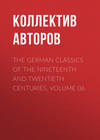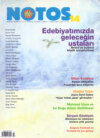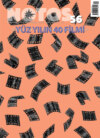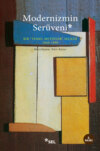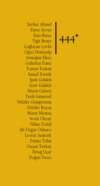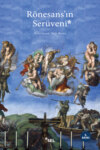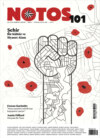Kitabı oku: «The German Classics of the Nineteenth and Twentieth Centuries, Volume 06», sayfa 9
ENGLISH FRAGMENTS56
BY HEINRICH HEINE
TRANSLATED BY CHARLES GODFREY LELAND
DIALOGUE ON THE THAMES
The sallow man stood near me on the deck, as I gazed on the green shores of the Thames, while in every corner of my soul the nightingales awoke to life. "Land of Freedom!" I cried, "I greet thee! Hail to thee, Freedom, young sun of the renewed world! Those older suns, Love and Faith, are withered and cold, and can no longer light or warm us. The ancient myrtle woods, which were once all too full, are now deserted, and only timid turtle-doves nestle amid the soft thickets. The old cathedrals, once piled in towering height by an arrogantly pious race, which fain would force its faith into heaven, are crumbling, and their gods have ceased to believe in themselves. Those divinities are worn out, and our age lacks the imagination to shape others. Every power of the human breast now tends to a love of Liberty, and Liberty is, perhaps, the religion of the modern age. It is a religion not preached to the rich, but to the poor, and has in like manner its evangelists, its martyrs, and its Iscariots!"
"Young enthusiast," said the sallow man, "you will not find what you seek. You may be in the right in believing that Liberty is a new religion which will spread over all the world. But as every race of old, when it received Christianity, did so according to its requirements and its peculiar character, so, at present, every country adopts from the new religion of liberty only that which is in accordance with its local needs and national character.
The English are a domestic race, living a sequestered, peaceable, family life, and the Englishman seeks in the circle of those connected with and pertaining to him that easy state of mind which is denied to him through his innate social incapacity. The Englishman is, therefore, contented with that liberty which secures his most personal rights and guards his body, his property, and his conjugal relations, his religion, and even his whims, in the most unconditional manner. No one is freer in his home than an Englishman, and, to use a celebrated expression, he is king and bishop between his four walls; and there is much truth in the common saying, 'My house is my castle.'
"If the Englishman has the greatest need of personal freedom, the Frenchman, in case of necessity, can dispense with it, if we only grant him that portion of universal liberty known as equality. The French are not a domestic, but a social, race; they are no friends to a silent tête-à-tête, which they call une conversation anglaise; they run gossiping about from the café to the casino, and from the casino to the salons; their light champagne-blood and inborn talent for company drive them to social life, whose first and last principle, yes, whose very soul, is equality. The development of the social principle in France necessarily involved that of equality, and if the ground of the Revolution should be sought in the Budget, it is none the less true that its language and tone were drawn from those wits of low degree who lived in the salons of Paris, apparently on a footing of equality with the high noblesse, and who were now and then reminded, it may have been by a hardly perceptible, yet not on that account less exasperating, feudal smile, of the great and ignominious inequality which lay between them. And when the canaille roturière took the liberty of beheading that high noblesse, it was done less to inherit their property than their ancestry, and to introduce a noble equality in place of a vulgar inequality. And we are the better authorized to believe that this striving for equality was the main principle of the Revolution, since the French speedily found themselves so happy and contented under the dominion of their great Emperor, who, fully appreciating that they were not yet of age, kept all their freedom within the limits of his powerful guardianship, permitting them only the pleasure of a perfect and admirable equality.
"Far more patient than the Frenchman, the Englishman easily bears the glances of a privileged aristocracy, consoling himself with the reflection that he has a right which renders it impossible for others to disturb his personal comfort or his daily requirements. Nor does the aristocracy here make a show of its privileges, as on the Continent. In the streets and in places of public resort in London, colored ribbons are seen only on women's bonnets, and gold and silver signs of distinction on the dresses of lackeys. Even that beautiful, colored livery which indicates with us military rank is, in England, anything but a sign of honor, and, as an actor after a play hastens to wash off the rouge, so an English officer hastens, when the hours of active duty are over, to strip off his red coat and again appear like a gentleman, in the plain garb of a gentleman. Only at the theatre of St. James are those decorations and costumes, which were raked from the off-scourings of the Middle Ages, of any avail. There we may see the ribbons of orders of nobility; there the stars glitter, silk knee-breeches and satin trains rustle, golden spurs and old-fashioned French styles of expression clatter; there the knight struts and the lady spreads herself. But what does a free Englishman care for the Court comedy of St. James, so long as it does not trouble him, and so long as no one interferes when he plays comedy in like manner in his own house, making his lackeys kneel before him, or plays with the garter of a pretty cook-maid? 'Honi soit qui mal y pense!'
"As for the Germans, they need neither freedom nor equality. They are a speculative race, ideologists, prophets, and sages, dreamers who live only in the past and in the future, and who have no present. Englishmen and Frenchmen have a present; with them every day has its field of action, its struggle against enemies, its history. The German has nothing for which to battle, and when he began to realize that there might be things worth striving for, his philosophizing wiseacres taught him to doubt the existence of such things. It cannot be denied that the Germans love liberty, but it is in a different manner from other people. The Englishman loves liberty as his lawful wife, and, even if he does not treat her with remarkable tenderness, he is still ready in case of need to defend her like a man, and woe to the red-coated rascal who forces his way to her bedroom—let him do so as a gallant or as a catchpoll. The Frenchman loves liberty as his bride. He burns for her; he is a flame; he casts himself at her feet with the most extravagant protestations; he will fight for her to the death; he commits for her sake a thousand follies. The German loves liberty as though she were his old grandmother."
Men are strange beings! We grumble in our Fatherland; every stupid thing, every contrary trifle, vexes us there; like boys, we are always longing to rush forth into the wide world, and, when we finally find ourselves there, we find it too wide, and often yearn in secret for the narrow stupidities and contrarieties of home. Yes, we would fain be again in the old chamber, sitting behind the familiar stove, making for ourselves, as it were, a "cubby-house" near it, and, nestling there, read the German General Advertiser. So it was with me in my journey to England. Scarcely had I lost sight of the German shore ere there awoke in me a curious after-love for the German nightcaps and forest-like wigs which I had just left in discontent; and when the Fatherland faded from my eyes I found it again in my heart. And, therefore, it may be that my voice quivered in a somewhat lower key as I replied to the sallow man—"Dear sir, do not scold the Germans! If they are dreamers, still many of them have conceived such beautiful dreams that I would hardly incline to change them for the waking realities of our neighbors. Since we all sleep and dream, we can perhaps dispense with freedom; for our tyrants also sleep, and only dream their tyranny. We awoke only once—when the Catholic Romans robbed us of our dream-freedom; then we acted and conquered, and laid us down again and dreamed. O sir! do not mock our dreamers, for now and then they speak, like somnambulists, wondrous things in sleep, and their words become the seeds of freedom. No one can foresee the turn which things may take. The splenetic Briton, weary of his wife, may put a halter round her neck and sell her in Smithfield. The flattering Frenchman may perhaps be untrue to his beloved bride and abandon her, and, singing, dance after the Court dames (courtisanes) of his royal palace (palais royal). But the German will never turn his old grandmother quite out of doors; he will always find a place for her by his fireside, where she can tell his listening children her legends. Should Freedom ever vanish from the entire world—which God forbid!—a German dreamer would discover her again in his dreams."
While the steamboat, and with it our conversation, swam thus along the stream, the sun had set, and his last rays lit up the hospital at Greenwich, an imposing palace-like building which in reality consists of two wings, the space between which is empty, and a green hill crowned with a pretty little tower from which one can behold the passers-by. On the water the throng of vessels became denser and denser, and I wondered at the adroitness with which they avoided collision. While passing, many a sober and friendly face nodded greetings—faces whom we had never seen before, and were never to see again. We sometimes came so near that it was possible to shake hands in joint welcome and adieu. One's heart swells at the sight of so many bellying sails, and we feel strangely moved when the confused hum and far-off dance-music, and the deep voices of sailors, resound from the shore. But the outlines of all things vanished little by little behind the white veil of the evening mist, and there remained visible only a forest of masts, rising long and bare above it.
The sallow man still stood near me and gazed reflectively on high, as though he sought for the pale stars in the cloudy heaven. And, still gazing aloft, he laid his hand on my shoulder, and said in a tone as though secret thoughts involuntarily became words—"Freedom and equality! they are not to be found on earth below nor in heaven above. The stars on high are not alike, for one is greater and brighter than another; none of them wanders free, all obey a prescribed and iron-like law—there is slavery in heaven as on earth!"
"There is the Tower!" suddenly cried one of our traveling companions, as he pointed to a high building which rose like a spectral, gloomy dream above the cloud-covered London.
* * * * *
LONDON
I have seen the greatest wonder which the world can show to the astonished spirit; I have seen it, and am still astonished; and still there remains fixed in my memory the stone forest of houses, and amid them the rushing stream of faces of living men with all their motley passions, all their terrible impulses of love, of hunger, and of hatred—I mean London.
Send a philosopher to London, but, for your life, no poet! Send a philosopher there, and station him at a corner of Cheapside, where he will learn more than from all the books of the last Leipzig fair; and as the billows of human life roar around him, so will a sea of new thoughts rise before him, and the Eternal Spirit which moves upon the face of the waters will breathe upon him; the most hidden secrets of social harmony will be suddenly revealed to him; he will hear the pulse of the world beat audibly, and see it visibly; for if London is the right hand of the world—its active, mighty right hand—then we may regard that route which leads from the Exchange to Downing Street as the world's pyloric artery.
But never send a poet to London! This downright earnestness of all things, this colossal uniformity, this machine-like movement, this troubled spirit in pleasure itself, this exaggerated London, smothers the imagination and rends the heart. And should you ever send a German poet thither—a dreamer, who stares at everything, even a ragged beggar-woman, or the shining wares of a goldsmith's shop—why, then, at least he will find things going right badly with him, and he will be hustled about on every side, or perhaps be knocked over with a mild "God damn!" God damn!—damn the knocking about and pushing! I see at a glance that these people have enough to do. They live on a grand scale, and though food and clothes are dearer with them than with us, they must still be better fed and clothed than we are—as gentility requires. Moreover, they have enormous debts, yet occasionally, in a vainglorious mood, they make ducks and drakes of their guineas, pay other nations to box about for their pleasure, give their kings a handsome douceur into the bargain; and, therefore, John Bull must work to get the money for such expenditure. By day and by night he must tax his brain to discover new machines, and he sits and reckons in the sweat of his brow, and runs and rushes, without much looking around, from the Docks to the Exchange, and from the Exchange to the Strand; and therefore it is quite pardonable if he, when a poor German poet, gazing into a print-shop window, stands bolt in his way on the corner of Cheapside, should knock the latter sideways with a rather rough "God damn!"
But the picture at which I was gazing as I stood at Cheapside corner was that of the French crossing the Beresina.
And when I, jolted out of my gazing, looked again on the raging street, where a parti-colored coil of men, women, and children, horses, stagecoaches, and with them a funeral, whirled groaning and creaking along, it seemed to me as though all London were such a Beresina Bridge, where every one presses on in mad haste to save his scrap of life; where the daring rider stamps down the poor pedestrian; where every one who falls is lost forever; where the best friends rush, without feeling, over one another's corpses; and where thousands in the weakness of death, and bleeding, grasp in vain at the planks of the bridge, and are shot down into the icy grave of death.
How much more pleasant and homelike it is in our dear Germany! With what dreaming comfort, in what Sabbath-like repose, all glides along here! Calmly the sentinels are changed, uniforms and houses shine in the quiet sunshine, swallows flit over the flagstones, fat Court-counciloresses smile from the windows; while along the echoing streets there is room enough for the dogs to sniff at each other, and for men to stand at ease and chat about the theatre, and bow deeply—oh, how deeply!—when some small aristocratic scamp or vice-scamp, with colored ribbons on his shabby coat, or some Court-marshal-low-brow struts along as if in judgment, graciously returning salutations.
I had made up my mind in advance not to be astonished at that immensity of London of which I had heard so much. But I had as little success as the poor schoolboy who determined beforehand not to feel the whipping which he was to receive. The facts of the case were that he expected to get the usual blows with the usual stick in the usual way on the back, whereas he received a most unusually severe licking on an unusual place with a cutting switch. I anticipated great palaces, and saw nothing but mere small houses. But their very uniformity and their limitless extent impress the soul wonderfully.
These houses of brick, owing to the damp atmosphere and coal smoke, are all of an uniform color, that is to say, of a brown olive-green, and are all of the same style of building, generally two or three windows wide, three stories high, and finished above with small red tiles, which remind one of newly extracted bleeding teeth; while the broad and accurately squared streets which these houses form seem to be bordered by endlessly long barracks. This has its reason in the fact that every English family, though it consist of only two persons, must still have a house to itself for its own castle, and rich speculators, to meet the demand, build, wholesale, entire streets of these dwellings, which they retail singly. In the principal streets of the city, where the business of London is most at home, where old-fashioned buildings are mingled with the new, and where the fronts of the houses are covered with signs, yards in length, generally gilt, and in relief, this characteristic uniformity is less striking—the less so, indeed, because the eye of the stranger is incessantly caught by the new and brilliant wares exposed for sale in the windows. And these articles do not merely produce an effect, because the Englishman completes so perfectly everything which he manufactures, and because every article of luxury, every astral lamp and every boot, every teakettle and every woman's dress, shines out so invitingly and so finished. There is also a peculiar charm in the art of arrangement, in the contrast of colors, and in the variety of the English shops; even the most commonplace necessities of life appear in a startling magic light through this artistic power of setting forth everything to advantage. Ordinary articles of food attract us by the new light in which they are placed; even uncooked fish lie so delightfully dressed that the rainbow gleam of their scales attracts us; raw meat lies, as if painted, on neat and many-colored porcelain plates, garlanded about with parsley—yes, everything seems painted, reminding us of the highly polished yet modest pictures of Franz Mieris. But the human beings whom we see are not so cheerful as in the Dutch paintings, for they sell the jolliest wares with the most serious faces, and the cut and color of their clothes is as uniform as that of their houses.
On the opposite side of the town, which they call the West End—"the west end of the town"—and where the more aristocratic and less occupied world lives, the uniformity spoken of is still more dominant; yet here there are very long and very broad streets, where all the houses are large as palaces, though anything but remarkable as regards their exterior, unless we except the fact that in these, as in all the better class of houses in London, the windows of the first étage (or second story) are adorned with iron-barred balconies, and also on the rez de chaussée there is a black railing protecting the entrance to certain subterranean apartments. In this part of the city there are also great "squares," where rows of houses like those already described form a quadrangle, in whose centre there is a garden, inclosed by an iron railing and containing some statue or other. In all of these places and streets the eye is never shocked by the dilapidated huts of misery. Everywhere we are stared down on by wealth and respectability, while, crammed away in retired lanes and dark, damp alleys, Poverty dwells with her rags and her tears.
The stranger who wanders through the great streets of London, and does not chance right into the regular quarters of the multitude, sees little or nothing of the fearful misery existing there. Only here and there at the mouth of some dark alley stands a ragged woman with a suckling babe at her weak breast, and begs with her eyes. Perhaps, if those eyes are still beautiful, we glance into them, and are shocked at the world of wretchedness visible within. The common beggars are old people, generally blacks, who stand at the corners of the streets cleaning pathways—a very necessary thing in muddy London—and ask for "coppers" in reward. It is in the dusky twilight that Poverty and her mates, Vice and Crime, glide forth from their lairs. They shun daylight the more anxiously since their wretchedness there contrasts more cruelly with the pride of wealth which glitters everywhere; only Hunger sometimes drives them at noonday from their dens, and then they stand with silent, speaking eyes, staring beseechingly at the rich merchant who hurries along, busy, and jingling gold, or at the lazy lord who, like a surfeited god, rides by on his high horse, casting now and then an aristocratically indifferent glance at the mob below, as though they were swarming ants, or rather a mass of baser beings, whose joys and sorrows have nothing in common with his feelings. Yes—for over the vulgar multitude which sticks fast to the soil there soars, like beings of a higher nature, England's nobility, to whom their little island is only a temporary resting-place, Italy their summer garden, Paris their social salon, and the whole world their inheritance. They sweep along, knowing nothing of sorrow or suffering, and their gold is a talisman which conjures into fulfilment their wildest wish.
Poor Poverty! how agonizing must thy hunger be, where others swell in scornful superfluity! And when some one casts with indifferent hand a crust into thy lap, how bitter must the tears be wherewith thou moistenest it! Thou poisonest thyself with thine own tears. Well art thou in the right when thou alliest thyself to Vice and Crime! Outlawed criminals often bear more humanity in their hearts than those cool, reproachless town burghers of virtue, in whose white hearts the power of evil, it is true, is quenched—but with it, too, the power of good. And even vice is not always vice. I have seen women on whose cheeks red vice was painted, and in whose hearts dwelt heavenly purity. I have seen women—I would that I saw them again!—
WELLINGTON
The man has the bad fortune to meet with good fortune everywhere, and wherever the greatest men in the world were unfortunate; and that excites us, and makes him hateful. We see in him only the victory of stupidity over genius—Arthur Wellington triumphant where Napoleon Bonaparte is overwhelmed! Never was a man more ironically gifted by Fortune, and it seems as though she would exhibit his empty littleness by raising him high on the shield of victory. Fortune is a woman, and perhaps in womanly wise she cherishes a secret grudge against the man who overthrew her former darling, though the very overthrow came from her own will. Now she lets him conquer again on the Catholic Emancipation question—yes, in the very fight in which George Canning was destroyed. It is possible that he might have been loved had the wretched Londonderry been his predecessor in the Ministry; but it happens that he is the successor of the noble Canning—of the much-wept, adored, great Canning—and he conquers where Canning was overwhelmed. Without such an adversity of prosperity, Wellington would perhaps pass for a great man; people would not hate him, would not measure him too accurately, at least not with the heroic measure with which a Napoleon and a Canning are measured, and consequently it would never have been discovered how small he is as man.
He is a small man, and smaller than small at that. The French could say nothing more sarcastic of Polignac than that he was a Wellington without celebrity. In fact, what remains when we strip from a Wellington the field-marshal's uniform of celebrity?
I have here given the best apology for Lord Wellington—in the English sense of the word. My readers will be astonished when I honorably confess that I once praised this hero—and clapped on all sail in so doing. It is a good story, and I will tell it here:
My barber in London was a Radical, named Mr. White—poor little man in a shabby black dress, worn until it almost shone white again; he was so lean that even his full face looked like a profile, and the sighs in his bosom were visible ere they rose. These sighs were caused by the misfortunes of Old England—by the impossibility of paying the National Debt.
"Ah!" I generally heard him sigh, "why need the English people trouble themselves as to who reigns in France, and what the French are a-doing at home? But the high nobility, sir, and the High Church were afraid of the principles of liberty of the French Revolution; and to keep down these principles John Bull must give his gold and his blood, and make debts into the bargain. We've got all we wanted out of the war—the Revolution has been put down, the French eagles of liberty have had their wings cut, and the High Church may be cock-sure that none of these eagles will come a-flying over the Channel; and now the high nobility and the High Church between 'em ought to pay, anyway, for the debts which were made for their own good, and not for any good of the poor people. Ah! the poor people!"
Whenever Mr. White came to the "poor people" he always sighed more deeply than ever, and the refrain then was that bread and porter were so dear that the poor people must starve to feed fat lords, stag-hounds, and priests, and that there was only one remedy. At these words he was wont to whet his razor, and as he drew it murderously up and down the strop, he murmured grimly to himself, "Lords, priests, hounds!"
But his Radical rage boiled most fiercely against the Duke of Wellington; he spat gall and poison whenever he alluded to him, and as he lathered me he himself foamed with rage. Once I was fairly frightened when he, while barbering away at my neck, burst out in wonted wise against Wellington, murmuring all the while, "If I only had him this way under my razor, I'd save him the trouble of cutting his own throat, as his brother in office and fellow-countryman, Londonderry, did, who killed himself that-a-way at North Cray in Kent—God damn him!"
I felt that the man's hand trembled and, fearing lest he might imagine, in his excitement, that I really was the Duke of Wellington, I endeavored to allay his violence, and, in an underhand manner to soothe him, I called up his national pride; I represented to him that the Duke of Wellington had advanced the glory of the English, that he had always been an innocent tool in the hands of others, that he was fond of beefsteak, and that he finally—but the Lord only knows what fine things I said of Wellington as I felt that razor tickling around my throat!
What vexes me most is the reflection that Wellington will be as immortal as Napoleon Bonaparte. It is true that, in like manner, the name of Pontius Pilate will be as little likely to be forgotten as that of Christ. Wellington and Napoleon! It is a wonderful phenomenon that the human mind can at the same time think of both these names. There can be no greater contrast than the two, even in their external appearance. Wellington, the dumb ghost, with an ashy-gray soul in a buckram body, a wooden smile on his freezing face—and, by the side of that, think of the figure of Napoleon, every inch a god!
That figure never disappears from my memory. I still see him, high on his steed, with eternal eyes in his marble-like, imperial face, glancing calm as destiny on the Guards defiling past—he was then sending them to Russia, and the old Grenadiers glanced up at him so terribly devoted, so all-consciously serious, so proud in death—
"Te, Cæsar, morituri, salutant."
There often steals over me a secret doubt whether I ever really saw him, if we were ever contemporaries, and then it seems to me as if his portrait, torn from the little frame of the present, vanished away more proudly and imperiously in the twilight of the past. His name even now sounds to us like a word of the early world, and as antique and as heroic as those of Alexander and Cæsar. It has already become a rallying word among races, and when the East and the West meet they fraternize on that single name.
I once felt, in the deepest manner, how significantly and magically that name can sound. It was in the harbor of London, at the India Docks, and on board an East India-man just arrived from Bengal. It was a giant-like ship, fully manned with Hindoos. The grotesque forms and groups, the singularly variegated dresses, the enigmatical expressions of countenance, the strange gestures, the wild and foreign ring of their language, their shouts of joy and their laughter, with the seriousness ever rising and falling on certain soft yellow faces, their eyes like black flowers which looked at me as with wondrous woe—all of this awoke in me a feeling like that of enchantment; I was suddenly as if transported into Scherezade's story, and I thought that broad-leaved palms, and long-necked camels, and gold-covered elephants, and other fabulous trees and animals must forthwith appear. The supercargo who was on the vessel, and who understood as little of the language as I myself, could not, in his truly English narrow-mindedness, narrate to me enough of what a ridiculous race they were, nearly all pure Mohammedans collected from every land of Asia, from the limits of China to the Arabian Sea, there being even some jet-black, woolly-haired Africans among them.
To one whose whole soul was weary of the spiritless West, and who was as sick of Europe as I then was, this fragment of the East which moved cheerfully and changingly before my eyes was a refreshing solace; my heart enjoyed at least a few drops of that draught which I had so often tasted in gloomy Hanoverian or Royal Prussian winter nights, and it is very possible that the foreigners saw in me how agreeable the sight of them was to me, and how gladly I would have spoken a kind word to them. It was also plain from the very depths of their eyes how much I pleased them, and they would also have willingly said something pleasant to me, and it was a vexation that neither understood the other's language. At length a means occurred to me of expressing to them with a single word my friendly feelings, and, stretching forth my hands reverentially as if in loving greeting, I cried the name, "Mohammed!"
Joy suddenly flashed over the dark faces of the foreigners, and, folding their arms as reverentially in turn, as a cheerful greeting they exclaimed, "Bonaparte!"
